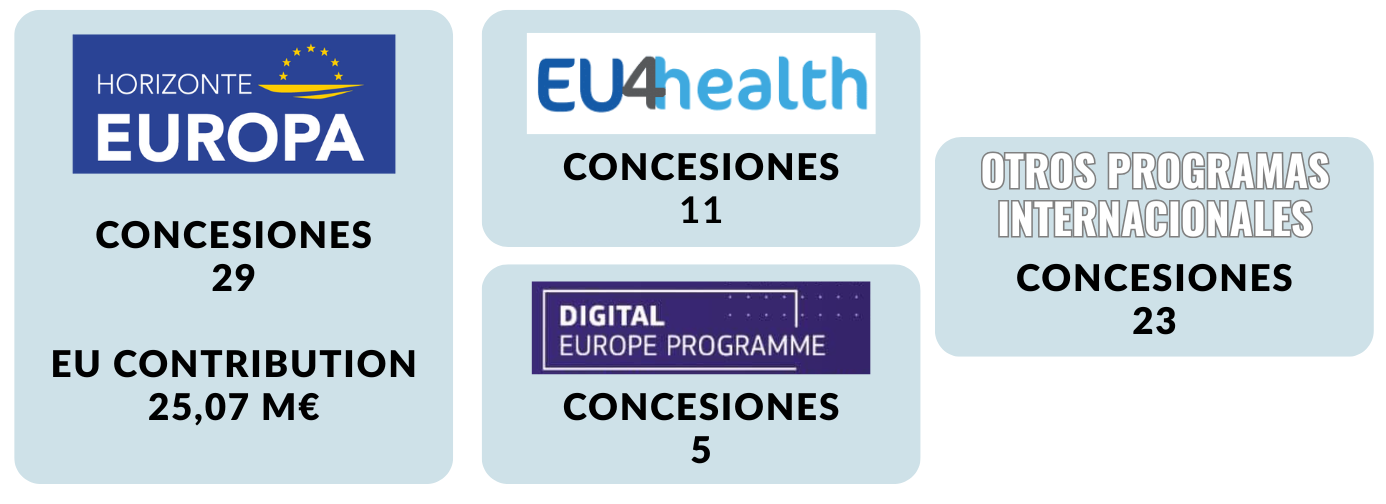Success Stories in Horizon Europe
At ISCIII, we firmly believe in the power of research to transform society. Through the Horizon Europe programme, our researchers have excelled in high-impact projects, taking part in innovative initiatives that address pressing scientific, technological, and social challenges.
We invite you to discover some of our most recent success stories and to hear directly from our researchers about their experiences.
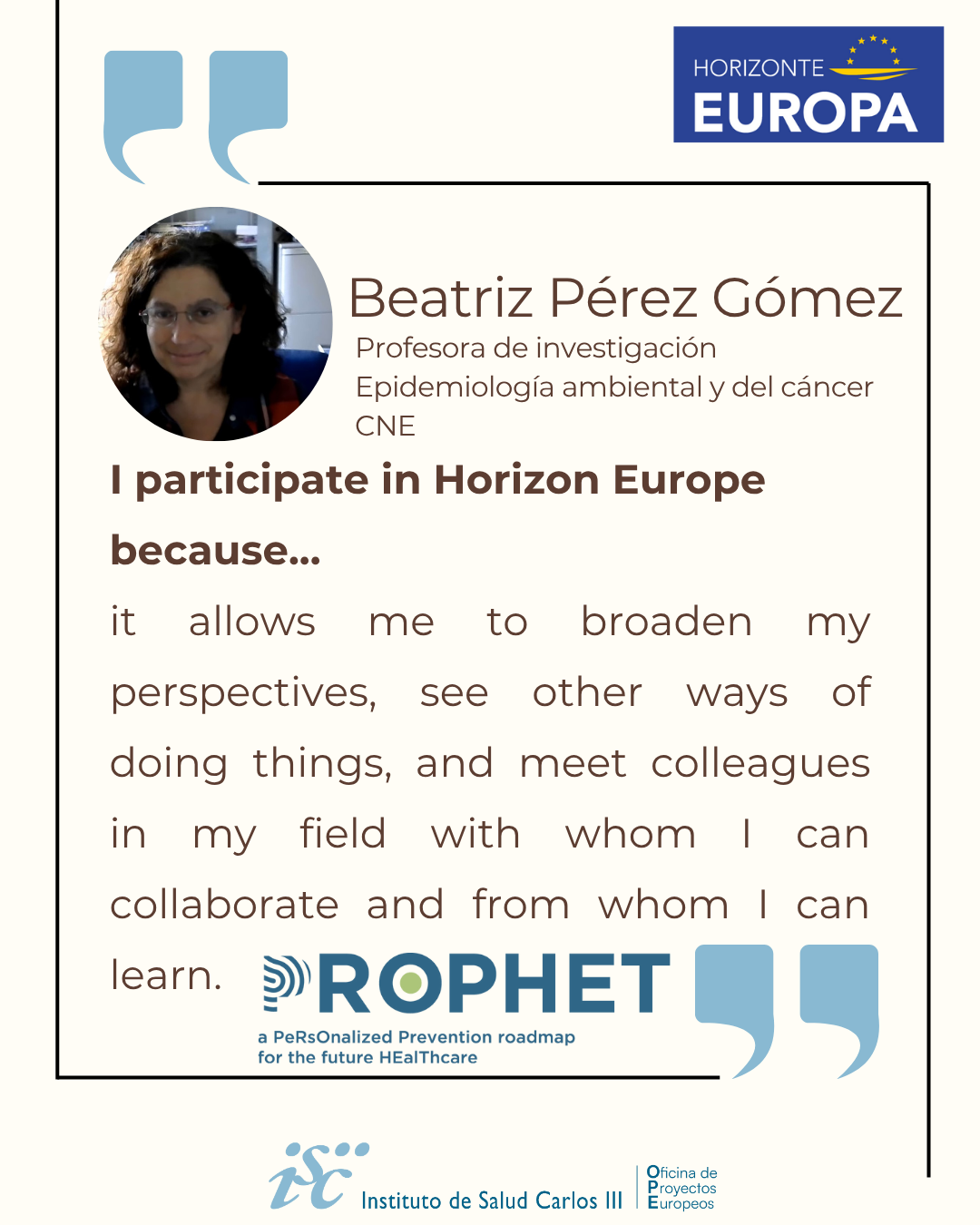
CIBER of Epidemiology and Public Health and ISCIII, through the National Center for Epidemiology, participate in PROPHET (A Personalized Prevention Roadmap For Future Healthcare), a Coordination and Support Action (CSA) promoted by the European Union. The project aims to define a strategic research and innovation agenda in the field of personalized prevention. In other words, it seeks to create a roadmap to support the development and implementation of innovative, sustainable, and high-quality personalized strategies that are effective in preventing chronic diseases and could become part of future healthcare.
Our group leads the work package (WP) responsible for mapping the current landscape from a broad perspective. This includes the biomarkers under investigation and their clinical utility, a review of ongoing personalized prevention programs and their challenges, European funding for these initiatives, current training for both the general population and healthcare professionals in this field, and challenges related to ethical, legal, social (ELSI), and economic aspects inherent to these actions.
Through the National Center for Epidemiology, ISCIII leads the methodological component of the project Mapping the Evidence for the World Health Organization (WHO) Classification of Tumours: a Living Evidence Gap Map by Tumour Type (WCT EVI MAP), which aims to systematize and evaluate the scientific evidence supporting the WHO Classification of Tumours. The project’s goal is to identify knowledge gaps and strengthen the scientific foundation for diagnostic decisions documented in the IARC (WHO) Blue Books.
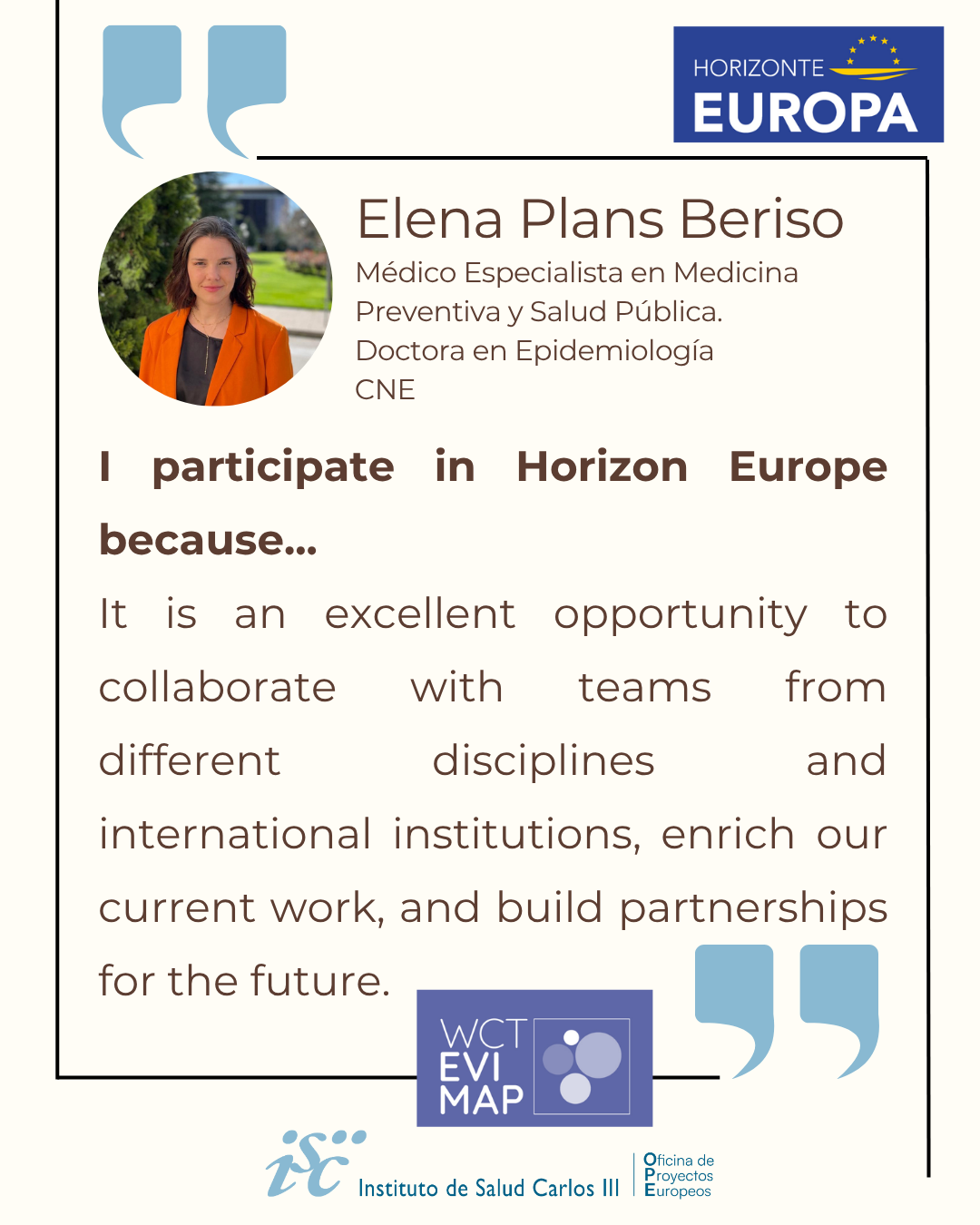
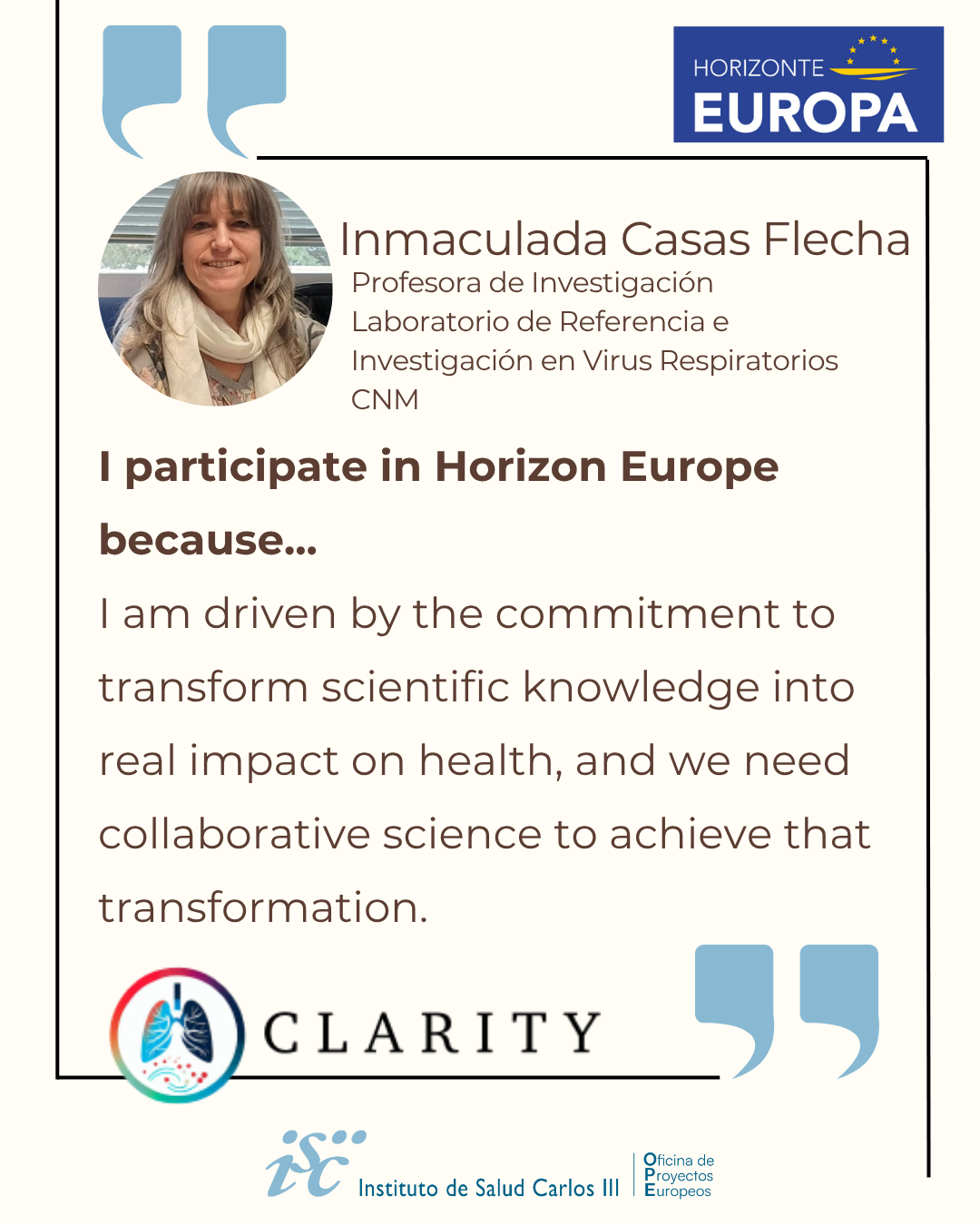
As the lead of one of the work packages of the CLARITY project (Causative Link between Respiratory Syncytial Virus and Chronic Lung Diseases: Identifying Targets for Therapy), I coordinate research on the relationship between Respiratory Syncytial Virus (RSV) and childhood respiratory diseases, particularly asthma. This line of work builds on more than two decades of collaboration with pediatricians from two leading hospitals in Madrid.
We conduct clinical follow-ups of infants and children hospitalized for viral respiratory infections, combined with a comprehensive virological study, allowing us to provide key data to understand the role of RSV in asthma development and to advance effective prevention strategies.
El ISCIII, a través del Centro Nacional de Sanidad Ambiental lidera junto a investigadoras del del Centro Nacional de Epidemiología (CNE) y Centro Nacional de Microbiología (CNM), la participacion en el proyecto Horizonte Europa ENVESOME: the Environmental Exposome and Health , GA 101157269 en el que se abordará el estudio de las exposiciones ambientales y sus efectos en la salud. La calidad del aire que respiramos, el ruido, la contaminación lumínica o la presencia de residuos peligrosos tiene un impacto directo en el bienestar y la salud física y mental de la población. El objetivo principal del proyecto es generar conocimiento sobre los efectos de la exposición a contaminantes ambientales (EXPOSOMA) en la salud, empleando una estrategia basada en la participación ciudadana y el desarrollo de herramientas que apoyen la toma de decisiones políticas, con el fin último de conseguir la implementación de nuevas medidas legislativas para la protección de la salud de la población en las diferentes etapas de la vida.
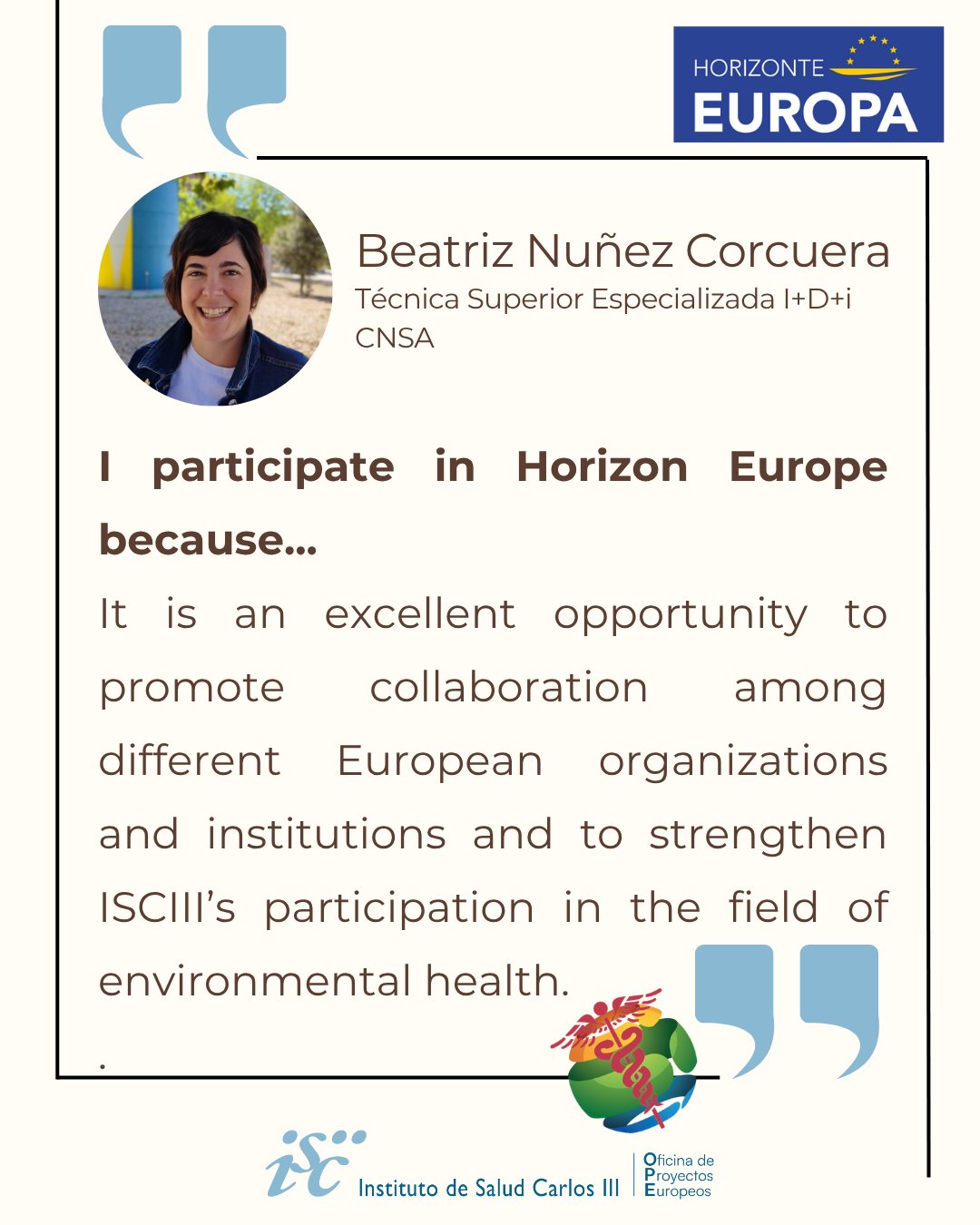
All projects financed by Horizon Europe
Nuestras Cifras
Participación del ISCIII en programas de financiación internacional
